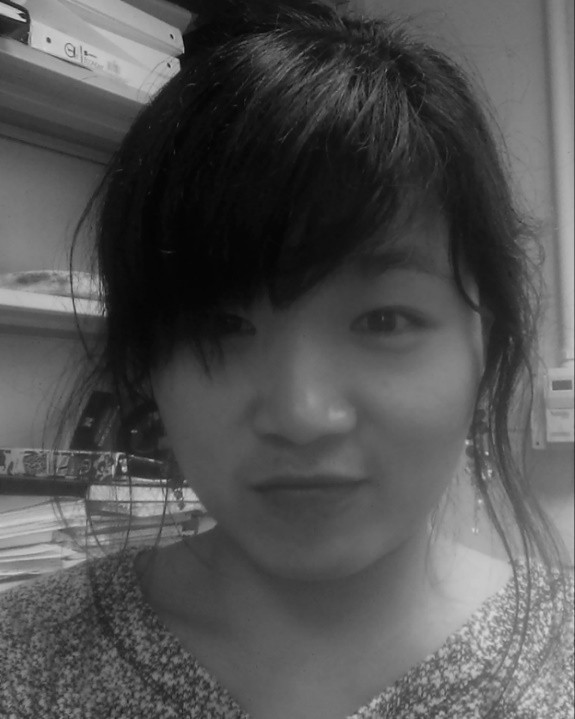2017 New Investigator Award: Yao Wu

 Yao Wu (University of Nebraska-Lincoln, USA)
Yao Wu (University of Nebraska-Lincoln, USA)
What made you chose a career in bioanalysis?
The essential reason behind my career path is because I have realized many societal challenges, such as health care, food safety, and environment monitoring can be solved by advancements in science, which requires continuous efforts from generation to generation. Thus, scientifically I want to make new adventures and in turn new contributions to health-care areas via choosing a career in bioanalysis. I dream to become a high-level teacher and researcher in bioanalysis field, who can spare no efforts into teaching, performing advanced bioanalysis research, and motivating younger generations of scientists to meet the societal challenges for the well-being of humankind.
Describe the main highlights of your bioanalytical work?
During my PhD study, I have worked on the design and fabrication of folding- and dynamics-based electrochemical (EC) biosensors for detection of DNA, metal ions, and anti-cancer drugs. Currently I am the senior graduate student who set up and am in charge of the Raman spectroscopy system in Prof. Lai’s group and have been working on nanostructure-based DNA sensors via electrochemical and Surface-Enhanced Raman Spectroscopy (SERS) hybrid technique for more than half a year.
By the end of 2017, I will have ten first-author papers. So far, I have already published six first-author and two co-author papers in peer-reviewed journals such as Analytical Chemistry, Chemical Communications and Biotechnology Journal. More impressively, the five papers out of eight articles have only two authors, i.e. myself and my supervisor. This could be a convincing sign showing my independent ability to work out the experiments, data analysis and writing manuscripts with fruitful outcomes. Meanwhile, I have completed the other four projects and these manuscripts are in either submission or preparation for publication. Last April, I won the Charles Wilkins Graduate Research Assistant Award from the Chemistry Department at UNL and won the Milton E. Mohr Fellowship Award from Center for Biotechnology at UNL.How has your work impacted your laboratory, the bioanalytical field and beyond?
Although many biosensors have been validated at the proof-of-concept level, most biosensors are still not transferring from a laboratory setting into the field. Approaches to enhance sensitivity, specificity and reproducibility are major impediments that intervene broad application of biosensors in clinical diagnosis. Based on their exceptional attributes, such as being rapid, sensitivity, selectivity, portability and cost-efficient, considerable attention has been devoted to the implementation of electrochemical biosensors in clinical analysis.
The purpose of my work at UNL was to develop biosensors and provide rationales behind biorecognition events to fulfill the demand in many fields, such as medical and health-care area and environmental monitoring. Analytes of interests in my PhD studies included DNA, metal ions and anticancer drugs as DNA mutations are crucial for the early diagnosis of genetic diseases, metal ions affect human health and environment, and routine anticancer drugs monitoring is significant for evaluating effectiveness of the chemotherapy.
Describe the most difficult challenge you have encountered in your scientific career and how you overcame it?
As an international graduate teaching and research assistant, I have gone a lot further than many professors could image when I just got started. Not only do I have impressive research accomplishment, but also have taught many different laboratory and recitation courses. The fantastic part of my story is that I am not a native English speaker and had stage fear, however, I am courageous, resourceful and diligent. As a graduate teaching assistant, I am always looking for ways to improve myself as a teacher and trying to motive my students. I really appreciate all the educational trainings I obtained at UNL, so I hold the strong belief that I have the mission to deliver knowledge to others. With this belief, I conquered my language barrier and stage fear by keeping teaching. Though I am graduating, I am still teaching a senior laboratory course. As a graduate research assistant, I succeeded in all the projects that I have worked on in the past five years. My success is mostly due to I never give up. All the challenges did not crash me down but made me become a stronger. I enjoy the process and look forward to keeping improving myself.
Describe your role in bioanalytical communities/groups?
As a member in bioanalytical communities, I have been active in presenting the results of my work. For instance, I have presented five posters on my work and given two oral presentations at national or regional conferences and within my department. During my PhD study, not only did I dedicate myself in a variety of research activities, but I was also an instructor in diverse outreach and teaching activities. I have been continuously participating in a great deal of outreach events. These events gave me an idea of how some outreach events could be set up and helped cultivate my interest in broadcasting and engaging with the public about science. Additionally, I have been a teaching assistant for seven semesters. The courses I taught or am teaching including General Chemistry Lab, Recitation and Instrumental Analysis Lab. Lab teaching was mostly one-on-one or small group interactions while recitation teaching was mostly big classroom interactions. Besides being a teaching assistant, I also mentored a high school student and an undergraduate student. All together, these teaching experience helped cultivate my interest in teaching. Thus, I had actively joined in diverse teaching development programs on campus to prepare myself for being a future teacher.
List up to five of your publications in the field of bioanalysis:
1Yao Wu, Rebecca Y. Lai*, “A Reagentless DNA-Based Electrochemical Silver (I) Sensor for Real Time Detection of Ag(I) – the Effect of Probe Sequence and Orientation on Sensor Response”. Biotechnology Journal, 2016, 11, 788-796.
2Yao Wu, Rebecca Y. Lai*, “Electrochemical Gold (III) Sensor with High Sensitivity and Tunable Dynamic Range”. Anal. Chem., 2016, 88, 2227-2233.
3Yao Wu, Rebecca Y. Lai*, “Electrochemical Detection of Platinum(IV) Prodrug Satraplatin in Serum”. Anal. Chem., 2015, 87, 11092-11097.
4Yao Wu, Rebecca Y. Lai*, “Effects of DNA Probe and Target Flexibility on the Performance of a “Signal-on” Electrochemical DNA Sensor”. Anal. Chem., 2014, 86, 8888-8895.
5Yao Wu, Rebecca Y. Lai*, Development of a “Signal-on” Electrochemical DNA Sensor with an Oligo-Thymine Spacer for Point Mutation Detection”. Chem. Commun., 2013, 49, 3422-3424.
Find out more about this year’s New Investigator Award, the judging panel and the rest of our nominees.



